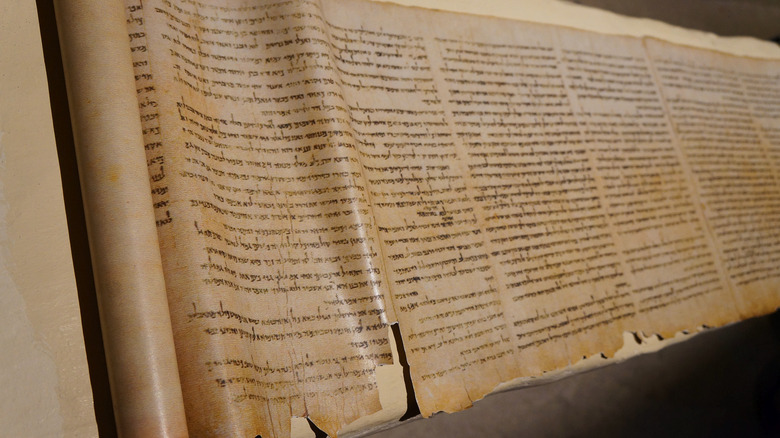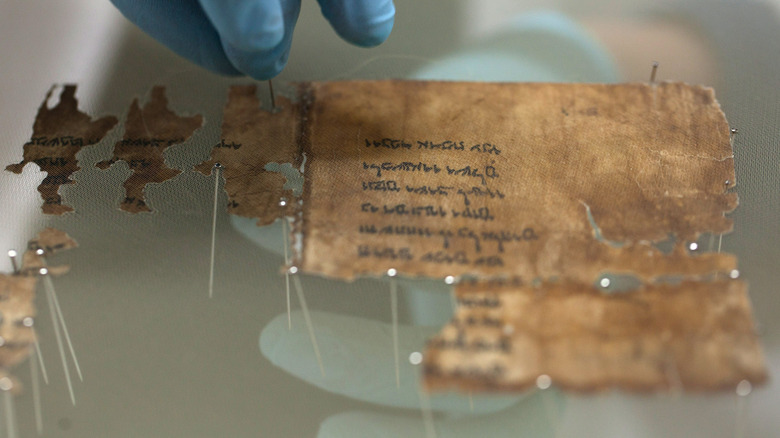Who Actually Wrote The Dead Sea Scrolls?
When in the early 1950s it was made public that fragments of ancient Biblical texts were uncovered in the caves of Qumran in the Judaean Desert, theologians, historians, and archeologists saw the chance to gain an unfettered insight into the religious beliefs and practices of ancient people as they had never experienced before. Known today as the "Dead Sea Scrolls," the discoveries — some 800 documents in total, according to the Smithsonian Magazine — dated from as early as 200 B.C., and as such were more than a 1,000 years older than any Hebrew texts of the Old Testament as yet discovered. As noted by History, almost the whole of the Hebrew Bible is represented somewhere within the Scrolls, as well as several other documents that shed light upon the ancient society from which they emerged.
However, even today, the documents remain highly contentious, with cultural commentators noting that the Scrolls had been essentially looted before, in many cases passing into private collections, per National Geographic. The same source notes that in 2020, it was discovered all 16 of the Dead Sea Scrolls housed at the Museum of the Bible were forgeries. But as well as the unscrupulous actions of dealers, collectors, and forgers, the Dead Sea Scrolls are also controversial in academic circles, where debate still rages over exactly who is responsible for the creation of the priceless ancient texts.
Challenging the consensus over the Dead Sea Scrolls
Since the Dead Sea Scrolls were revealed to the world, one major theory has dominated discussions of their origin. As noted by History, the Scrolls are attributed to the Essenes, a Jewish sect that occupied the Judaean Desert around the Qumran Caves until their displacement by Roman forces. Primarily, the Scrolls' Essenian authorship is assumed through what some scholars see as a match between one of the Scrolls — titled "Community Rule" — and a description of the Essenes by the ancient Roman historian Flavius Josephus. While this theory has become the prevailing wisdom as far as the Dead Sea Scrolls are concerned, many academics still have their doubts.
In 1995, professor of Jewish history Norman Golb published "Who Wrote the Dead Sea Scrolls? The Search for the Secret of Qumran," a landmark study that challenged the perceived wisdom that the Dead Sea Scrolls were uniformly the work of the Essenes. As described by Publishing Weekly, Golb's research highlights the fact that the Dead Sea Scrolls encompass "a wide spectrum of doctrines" and forms — not to mention languages — and that the common critical imperative to provide a cookie-cutter answer to questions about their origins and derivation unfairly simplifies their history. Arguing instead that many of the Scrolls have their origin in Jerusalem, Golb's study served as an important reminder that many of the mysteries of the Dead Sea Scrolls are yet to be unraveled.

